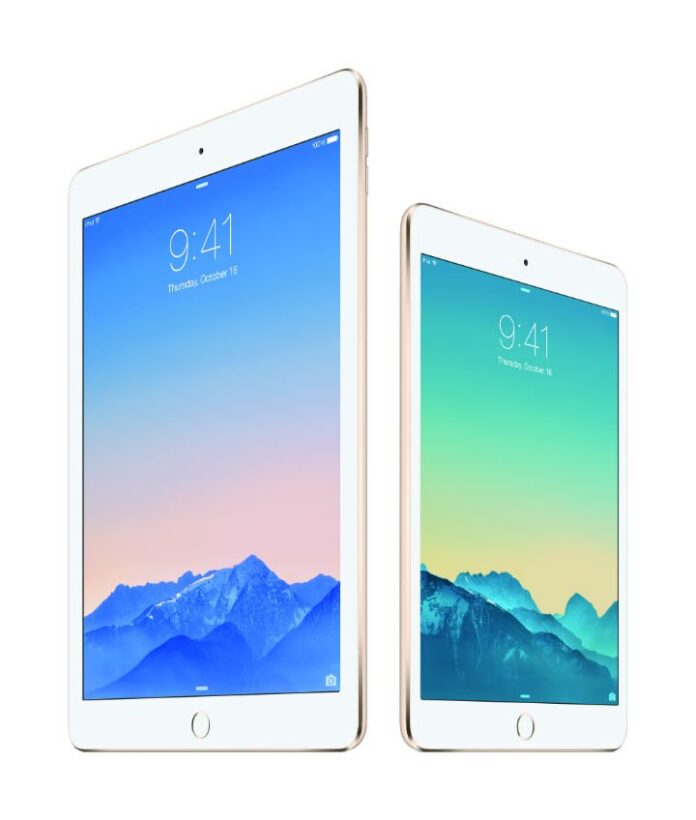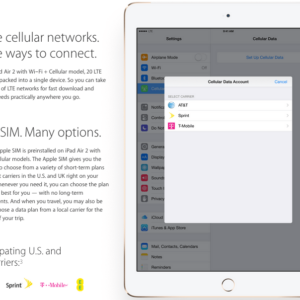Apple’s unveiling this week of updated iPad models included a small inclusion that could have a big impact on some mobile operators.
For the first time, Apple is selling a cellular version of its tablet devices with a single SIM card that works for multiple carriers. Specifically, the iPad Air 2 and iPad Mini 3 include an “Apple” branded SIM card that allows users to domestically switch between AT&T Mobility, Sprint and T-Mobile US using the same SIM. This breaks with past models where customers selecting a cellular-enabled iPad had to also pick which carrier they wanted the device to work with. Verizon Wireless was conspicuously left off the option list, though the carrier is listed as offering the devices.
The new models’ ability to support multiple carriers is helped by the embedded LTE chipset that supports 20 LTE bands, as well as five bands of UMTS/HSPA/HSPA+, four bands of GPRS/EDGE and two bands of CDMA2000 1x EV-DO Revision A and B.
That LTE support looks to be a boon for Sprint as it includes Band Class 41, which is what the carrier is using for its burgeoning 2.5 GHz-based TD-LTE service under the Spark brand.
The device, however, does not include LTE support for Band Class 12, which combines the A-, B- and C-Blocks in the lower 700 MHz band into a single, interoperable band class. A number of rural operators as well as T-Mobile US are looking to use the A-Block to support LTE services, which is omitted from the Band Class 17 that the new iPads do support that only include the B- and C-Blocks.
Both the inclusion of Band Class 41 and exclusion of Band Class 12 carry over similar specifications from the recently launched iPhone 6 and 6 Plus models.
Analysts seemed to indicate that the move to allowing multiple carriers to be supported on a single SIM would allow customers to switch between operators on a whim if they were tapping into no-contract, prepaid services. Mobile operators for the most part have been selling tablet devices sans contract, forcing consumers to pay full price for their device and selecting prepaid data buckets to feed their data demands. Some operators do offer up subsidized pricing tied to traditional two-year contracts, but the subsidy often only amounts to $100 or so.
However, more recently operators have been tying tablet purchases into shared data plans and device financing offers that in turn commit customers to at least one year of making payments on that device as well as the monthly fee to access the data bucket.
Bored? Why not follow me on Twitter?


